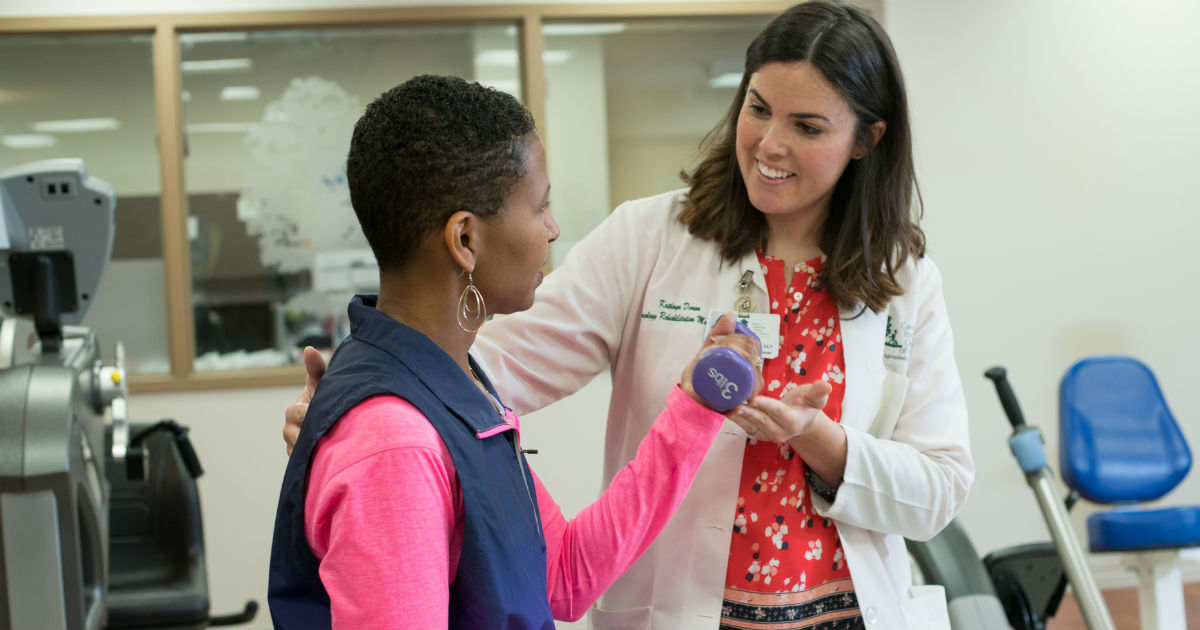
Cancer often affects men and women differently, both in terms of the side effects they endure and the way they handle them. Few experiences drive home the point more than breast cancer’s impact on women’s health and quality of life. The disease itself and treatments like surgery and chemotherapy can bring drastic changes, including early menopause, pain and body image issues. “Breast cancer survivors can lose a sense of their womanhood,” says Dr. Rola Eid, Medical Director of Plastic and Reconstructive Surgery at our hospital in Tulsa. “It’s an emotional roller coaster of ups and downs.”
A number of supportive therapies can help. They’re all part of an integrative approach to care that treats the whole person, not just the cancer. Pain management specialists, for example, often prescribe anti-inflammatory drugs or medication to help breast cancer patients offset pain and tenderness after surgery. Image enhancement services, such as wig-fittings, haircuts, manicures, compression garments to reduce swelling from lymphedema and skin care recommendations may help patients regain their confidence and sense of self.
Forming an integrative care team around patient needs is critical, says Dr. Shayma Kazmi, Hematologist-Oncologist & Medical Oncologist at our hospital in Philadelphia. “When you finish breast cancer treatment, you can still have lingering side effects, including treatment-related fatigue,” she says. “Patients may get back on track with appropriate naturopathic and integrative support, for example, stress management with yoga or appropriate supplements to address deficiencies.”
Other services that can help breast cancer patients manage side effects include:
Behaviorial health: With counseling, breathing techniques and tools such as guided imagery, which uses positive visualization to bring calm, mind-body therapists can help breast cancer patients relieve stress and anxiety. Since stress can lead to other complications, such as headaches, insomnia and loss of appetite, it’s important to spot the signs early, and address them immediately.
Oncology rehabilitation: Physical and occupational therapy exercises often help breast cancer patients manage lymphedema, pain and mobility issues that can result from surgery and other treatments. Here are the benefits of just a few of those options:
- Light-resistance training, particularly for the arms and shoulders, can help restore range of motion and improve strength after surgery.
- Hands-on manipulation to reduce the thickness of scars may improve their appearance, helping patients overcome related body image issues.
- Auriculotherapy, a painless, non-invasive technique, is used to stimulate the auricle of the external ear to help alleviate fatigue and other side effects of treatment.
The side effects that often accompany breast cancer and its treatment can take a toll. Fighting the cancer is only half the battle. Adding supportive therapies to their care plan may help patients stay strong, build their immunities and recover their quality of life, so they can focus on healing.


